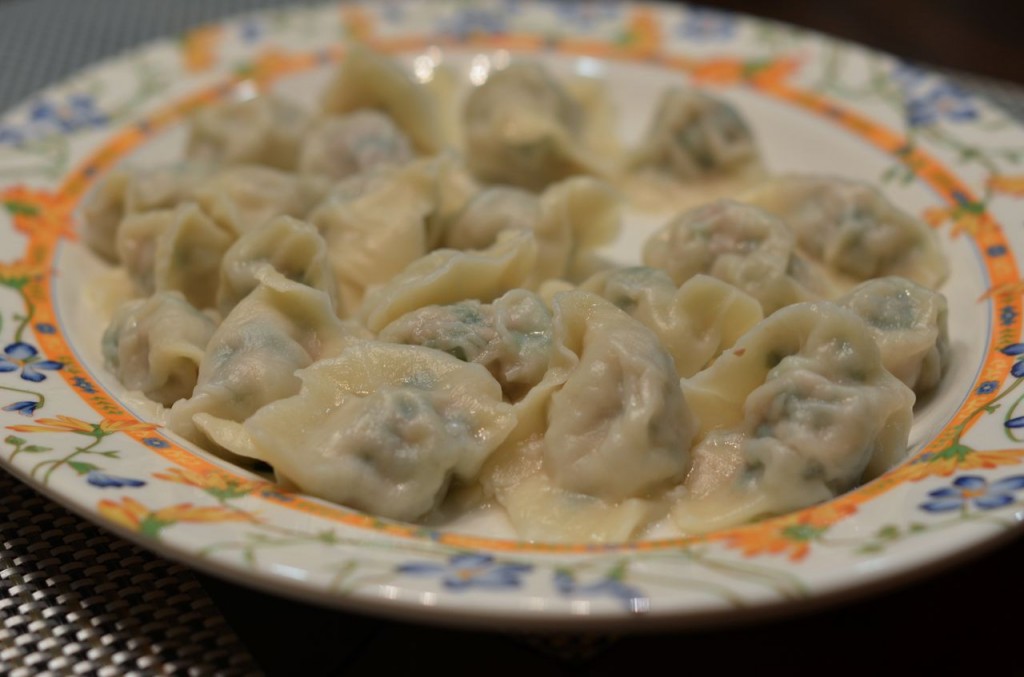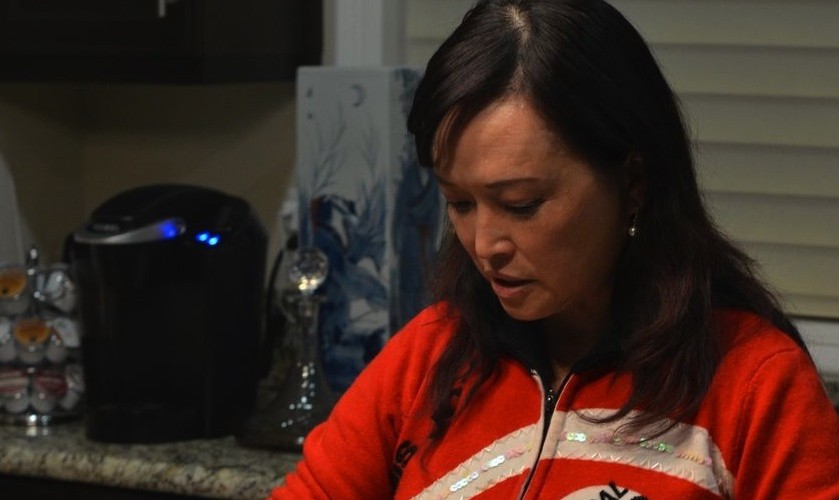When Theresa Lin walks into a room, all heads turn. At 60-something-years-old, she has an air to her that can’t be missed. Her posture is always impeccable and her wide, brown eyes always have an air of attentiveness to them. She doesn’t look a day over 40. When she’s at the right places, people will approach her and ask for cooking tips. Others affectionately call her teacher. Lin, dubbed the “Julia Child of Taiwan,” is beloved by the Chinese community.
She was the food stylist for Ang Lee’s Oscar-nominated movie, Eat Drink Man Woman, and the catering director for Life of Pi. The author of 16 cookbooks, and a host of a Sunday radio show in Los Angeles, her knowledge on Chinese cuisine is unmatched.
Her radio stint, which broadcasts in Mandarin every Sunday on AM 1300 in Los Angeles, is a one-hour talk show where she doles out cooking tips and answers food-related questions from the community. She’s a one-woman band. No producer, no assistant; just her in a single-room studio in Pasadena.
When she’s on air, the phones are always ringing. The calls flood in consistently for the whole hour. Listeners ask her everything from what the best way to make turnip cake is, to the properties of baking powder versus baking soda.
Ask her about a dish and she’ll go into lengths about its history. Ask her how to cook it, and she’ll break everything down for you step-by-step.
“Ginger, garlic, and scallions—these are the most basic aromatics,” she explains, while throwing a handful of them, chopped, into a wok. Lin is making mapo tofu at her Rancho Cucamonga home. She throws in a handful of ground pork.
“Then you want to add the chili,” she says. “Always add fermented pastes in the beginning.”
Born in Taiwan, Lin trained under the legendary Fu Pei Mei, one of the first cookbook authors in East Asia and a prominent Chinese television host. Mei was her mother-in-law and at the age of 22, Lin ended up running the operations at the family’s cooking school.
The world of food was something she stumbled upon. “Honestly, I wanted to be a diplomat,” she said. She was a French major and translator. But under her mother-in-law’s guidance, she quickly became a food writer, an administrator, a chef, and eventually—a media personality in her own right.
“Cooking became my way of becoming an ambassador,” Lin said.
In 1985, Lin entered a culinary competition sponsored by the Australian Meat and Livestock Corporation. “I won it and that’s when I became famous,” she recalled.
With a title to her name, she began to carve out her own career in the culinary industry—separate from her mother-in-law’s empire. She wrote her own books, hosted her own shows, and formed a Chinese chef’s association.
“There were so many chefs in China who had different regional specialties but they were like individual grains of sands—they never clumped together,” she said. “The Shanghai chef only knew how to cook Shanghai food. The Sichuan chef only knew how to cook Sichuan food.”
The group would meet once a month and exchange cooking techniques from their respective regions. From their meetings, Theresa picked up regional Chinese intricacies. Her broad knowledge ended up being her biggest asset. In the early 90s, she received a call from Taiwanese director Ang Lee.
“Ang Lee originally wanted to do a movie about a barber. But that didn’t have very good imagery, so he went with food. “
She became his right-hand assistant during the movie, often staying until the early morning to get the shot right. She recalls the very last scene of Eat, Drink, Man, Woman, which was filmed in Taiwan. The scene is of the father and his daughter. She ladles him some soup and realizes that her father could finally, after many years, finally taste ginger.
They had to do the take many times. She ended up making the soup 14 times.
Following the successful of the movie, Lin went on to work again with Ang Lee as the catering director for Life of Pi, filmed in Taichung. She was in charge of serving the staff.
Today, Lin lives in Rancho Cucamonga. Compared to her Taiwan days, she keeps a relatively low-key lifestyle. She’s prominent within the Chinese-speaking community in Los Angeles, hosts the occasional cooking workshop and is associated with various tourism boards around town.
She cites her children as her primary reason for moving to Southern California.
“I wanted to give them the best opportunities,” she says. “To be honest, despite all I have done, my children are my biggest accomplishments.”
– Clarissa Wei
Clarissa Wei is a Los Angeles-based writer who specializes in Chinese food and cuisine. She’s also the founder of Curated Gnomes, a boutique food tour company.

Theresa’s Dumpling Tips:
When making boiled dumplings, and half a cup of cold water to every cup of flour.
When making guo tie, or potstickers, add a cup of boiling water to three cups of flour. Then add ½ a cup of cold water and let the mixture sit for one hour before rolling it out.
When you’re making the filling, whip the ground pork and ingredients until you see the fibers.
When you’re rolling out the dough, the trick is to get the dumpling skin thick in the middle and thin on the sides.
Cold Noodles Recipe:
1.5 kilogram of you mian (oil wheat noodles) noodles
8 tablespoons of minced pork
Two eggs
Two carrots
½ kilogram of bean sprouts
1 small cucumber
- Add 1 tablespoon of oil to the minced pork under a small fire for five minutes
- Whip the eggs together and pan-fry them over low-medium heat. Once it turns into a thin crepe consistency, take it out and cut it into strips.
- Dice the carrots, cucumbers into thin strips.
- Boil water, then add the noodles.
- Strain the noodles with the coriander. Serve on plate.
- Add the minced pork in the middle, then overlay the eggs, carrots, and cucumbers around it.

